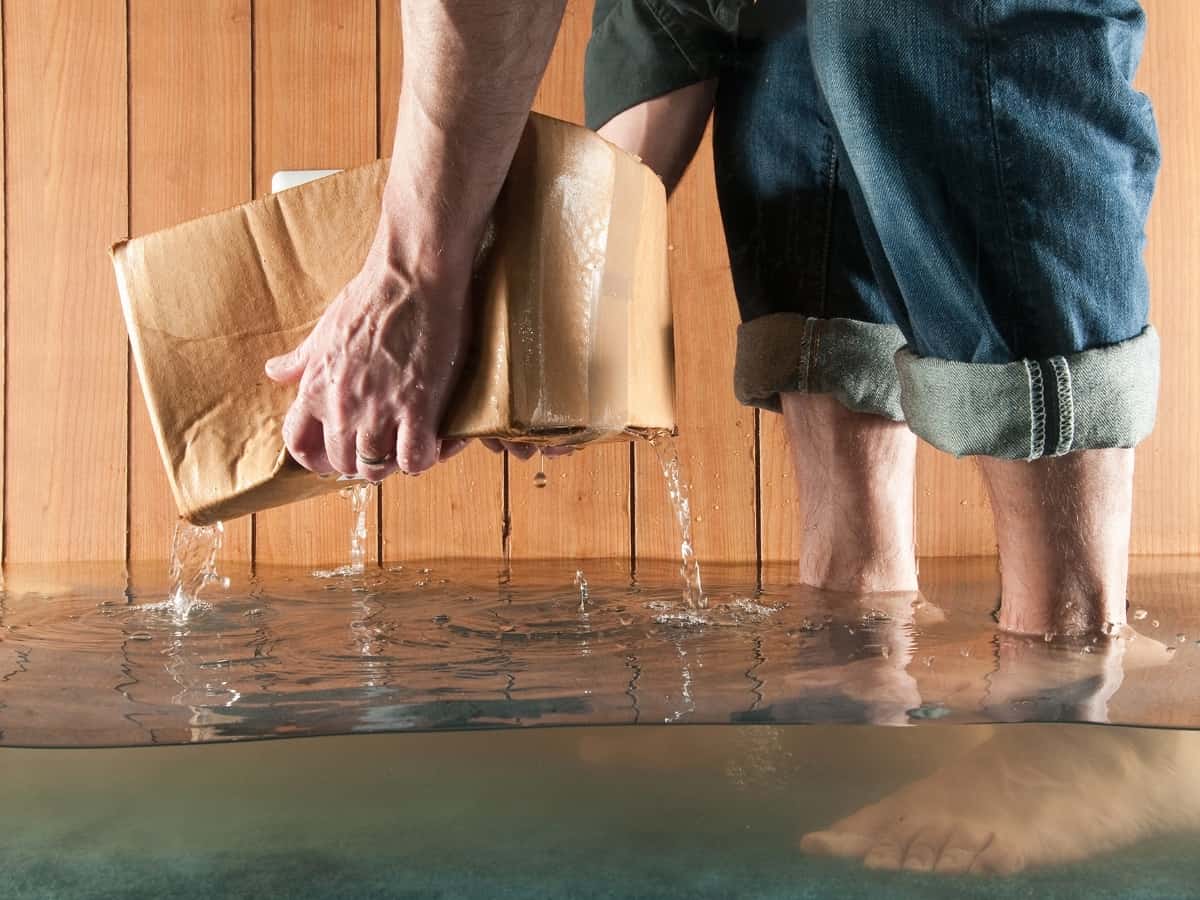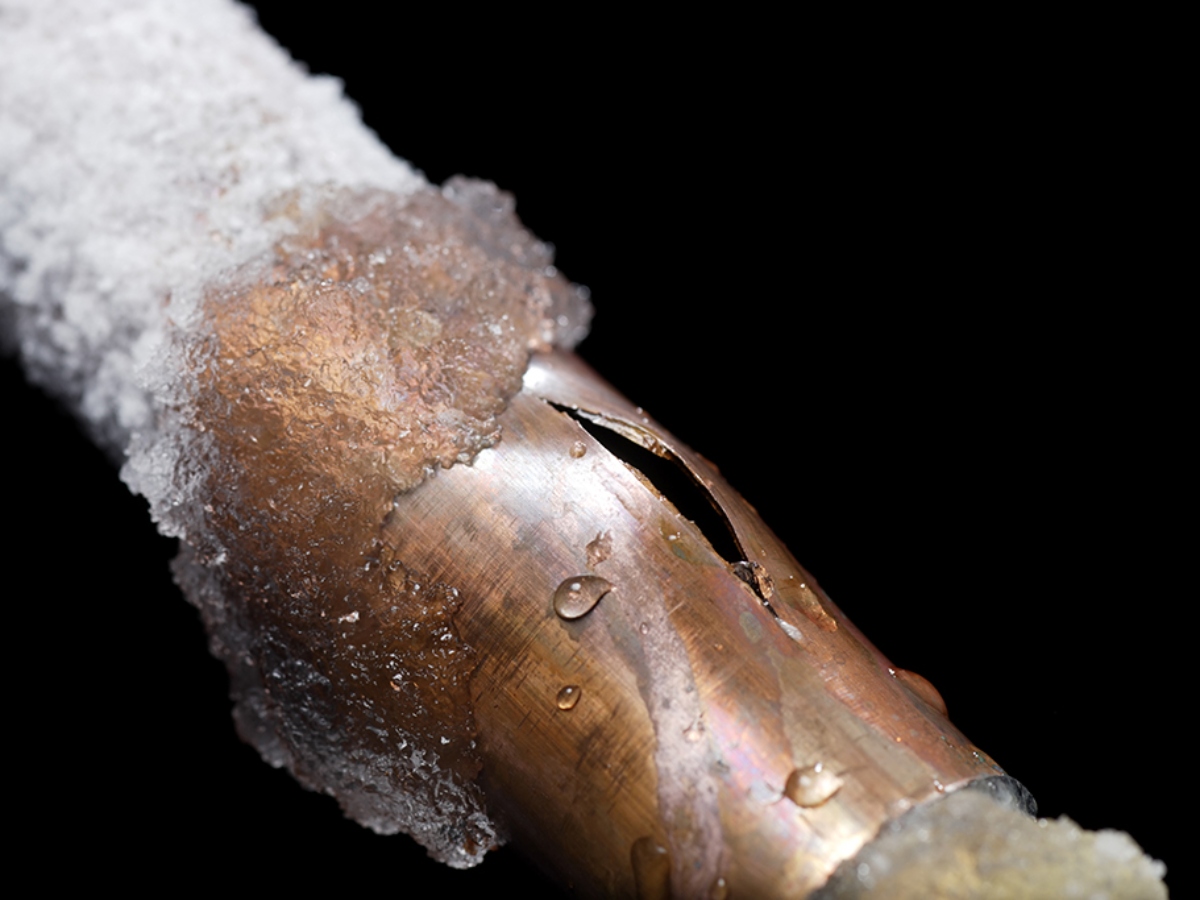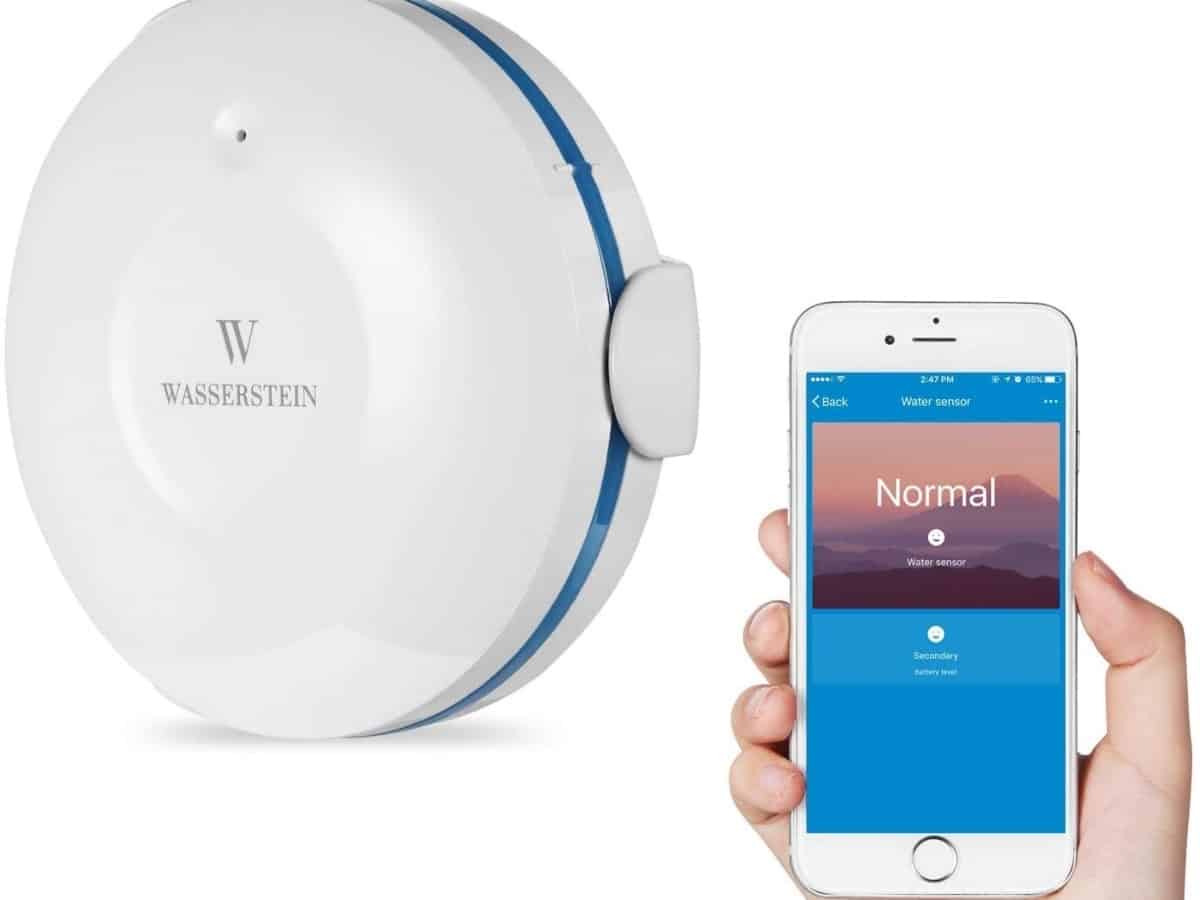We’re in the middle of winter, heading towards some of the coldest months of the year. With dropping temperatures comes frozen pipes. If you’re out of town or asleep, you might miss a pipe bursting open and flooding your basement. Luckily, a water sensor is a great piece of equipment that notifies you immediately if there’s a leak.
According to The Balance, one of the most common home insurance claims is due to water. With water claims, there are two options: weather related and non-weather related. Weather related water damage is consistent with rain, snow, or strong storms. Whereas non-weather related claims have to do with house leaks or bursts.
There are ways to go around house leaks and bursts. When it comes to making sure your household appliances (washing machines, dishwashers, and water heaters) don’t leak, follow the maintenance instructions that came with the machine. There are also preventative measures for bursts with your plumbing. Adding insulation to pipes running through parts of your home that are not heated is a great option. Another idea is to run a cold drip through faucets whenever outdoor temperatures drop below 20 degrees Fahrenheit. You should also set your thermostat to at least 55 degrees Fahrenheit and keep your cabinets open on cold nights to make sure the heat properly circulates.
The easiest option? Adding a water or freeze sensor.
What’s a Water Sensor?
A water sensor detects any presence of water when it comes to leaks. These sensors can be Wi-Fi enabled, sending a notification straight to your smartphone to inform you of where the leak is located. There are also some water sensor systems that can be programmed to automatically shut off water to the house to prevent a small leak turning into a household flood. While every household need is different, here are some common locations to put a water sensor:
- Washing Machine
- Dishwasher
- Refrigerator
- Sinks
- Toilets
- Furnaces and Boilers
- Hot Water Heaters
- Large Fish Tanks
It’s important to use water sensors because accumulated water can cause catastrophic damage to your property. This is especially true if you are away from your home, as water can stay undetected and cause moldy walls, warped floorboards, and damaged personal property.

Product Spotlight: The Qolsys IQ Water Valve
Looking for a great solution for your water sensors that doesn’t require a plumber? The Qolsys IQ Water Valve is for you. This product is a retrofit servo that operates with ¼ turn ball valves and pipes between ½” to 1 ¼”. The installation process is quick, easy, and you can do it all yourself. This valve helps you detect leaks for both indoor and outdoor use (just keep it out of the sun!). All information is sent right to your IQ panel for reliable and quick information. It is both waterproof and dustproof, designed for the maximum coverage for homes.
What is a Freezing Sensor?
Freezing sensors are similar to water sensors, where the primary function is to detect something out of the ordinary. In this instance, freezing sensors detect when your household drops below a certain temperature. This is a great option for vacation homes or houses that you don’t live at full time.
Some freeze sensors, like Ring’s sensor, are professionally monitored. Therefore, whenever water is sensed, or the temperature drops below 40 degrees Fahrenheit, someone will call you to inform you.

What to Look For When Buying a Freeze or Water Sensor
Every customer is different. That’s why there are different types of freeze and water sensors available for purchase. Here are some factors to consider when shopping for your water leak detection.
Smart Technology Integrations
One great factor with water sensors is that they can be integrated with cloud-based formats. These formats include Amazon Alexa, Nest Home, or any smart phone app. Other sensors could require a smart home hub as a control center instead of using an application. The choice on smart home integrated sensors is purely up to you, some users like it to be integrated in their homes while others don’t find it necessary.
Singular Home System or Multiple Sensors
If a whole-house system isn’t available, make sure to find options that allow you to have multiple sensors linked together so you can easily monitor your system. This is important if you’d like sensors in your kitchen under the sink or in the basement.
Finding a Water Sensor with an Automatic Water Shut-Off Tool
This system ability is useful if you are using sensors in a vacation home or if you travel frequently. This way, any leak will automatically shut off the water system. This can save you money in repairs and in home insurance claims.
Temperature Monitoring
Look for systems that can also monitor temperatures in the household. This is particularly important for areas in cold weather climates. If a household can get too cold, pipes can freeze, burst, and flood your home. Luckily, there are some systems that can notify you whenever the system is getting too cold, or have excess humidity (for mold infestation).
Battery Life
There are sensors that only last a year, while other systems can last for over five years. Put a reminder in your phone or calendar so you always remember to replace the battery on time.

Smart Home Questions? Call ONIT
Integrating smart home technology can be a really fun process for your household. However, it can also be confusing if you’ve never done it before! That’s where ONIT comes in. We are here to help you find the best equipment for your home and help with installation. Visit our website or call us today at 1-833-433-0331 to learn more.



